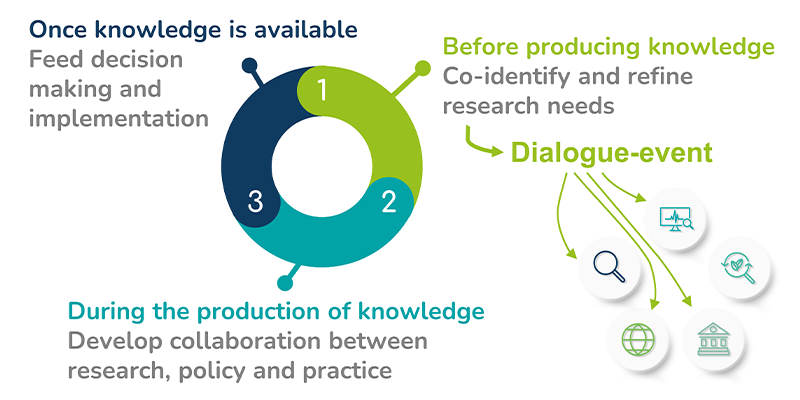Biodiversa+ brought together scientists and policymakers in Paris to address critical challenges in biodiversity restoration. Key topics included developing science-based strategies for prioritisation, long-term monitoring, and engaging diverse stakeholders.
Connecting R&I programs to policy
A key objective of Biodiversa+ is to act as a bridge between science, policy and other stakeholders. By fostering collaboration, we aim to improve the relevance and uptake of funded research in societal and policy processes.
Specifically, we focus on:
- Improving collaboration: We promote stronger links between environmental agencies, research and innovation (R&I) funders, and policy makers across scales.
- Strengthening knowledge: We focus on building a robust knowledge base for critical policy issues, proposing actionable policy options at various levels.
In this context, we organise consultations and dialogues between environmental and R&I policy makers, experts and relevant stakeholders. Together, they seek to identify emerging needs and priorities related to biodiversity.
The results feed into flagship programmes and bridge the gap between research and implementation.
Dialogue event on Restoration
Last week, we held a dialogue event in Paris on restoring biodiversity in Europe. Key issues included:
- Science-based prioritisation: Developing effective methods for selecting restoration sites, considering factors like climate change, land degradation and socio-cultural aspects.
- Long-term success: Developing tools for monitoring and evaluating restoration efforts, addressing long-term pressures on restored ecosystems, and integrating adaptive management.
Bringing together over 30 selected participants, discussions covered challenges and research priorities in support of the EU Biodiversity Strategy and the European Commission’s proposal for a Nature Restoration Law. Participants explored solutions such as prioritisation models, socio-cultural considerations, robust monitoring and collaborative platforms. Stakeholder engagement, data sharing and informed decision-making were central to the discussions.
These findings will contribute to the newly launched BiodivRestore Knowledge Hub, inform future Biodiversa+ activities and ultimately contribute to the global restoration of biodiversity as outlined in the Global Biodiversity Framework.




